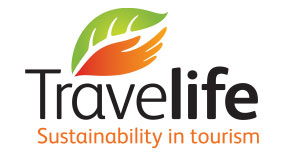
About Indian School of Nature (ISN)
Tourism has long been viewed as a significant contributor to global emissions. But what if we flipped the narrative? What if tourism, when designed consciously, could become a driving force for climate resilience, conservation finance, and community empowerment?
Ram Pratap Singh, Founder, and Hashim Tyabji, Co-Founder of the Indian School of Nature (ISN), are spearheading a movement that does exactly that—redefining the role of tourism in our climate and conservation journey. At ISN, sustainable travel isn’t just a niche—it’s a mission.
While tourism’s carbon footprint is undeniable, it also serves as an economic lifeline for biodiversity-rich but economically marginalized regions like Bandhavgarh in India and reserves across Africa. It fuels livelihoods, funds infrastructure, supports local enterprises, and offers dignity through employment.
The question isn’t “Can tourism generate capital?”—it already does. The real question is: Can it do so while being ecologically responsible?
Large-scale change happens through two engines: policy and people. While not everyone can write the laws, each of us can influence the culture. ISN embodies this belief by equipping the tourism industry with actionable tools.
They’ve developed an open-source carbon tracking software that enables accommodation providers to transparently assess their energy consumption and carbon emissions. By entering data—fuel bills, LPG usage, electricity, transport—stakeholders can calculate a carbon score per guest night, enhanced with satellite-based sequestration data (via Google Earth).
To ensure transparency and credibility, ISN partners with Bridges and Net Zero India, who audit these scores using internationally accepted GRI-aligned standards. TOFTigers is also integrating these carbon metrics into its certification framework, reinforcing the trust and value of this tool for both operators and travelers.
With such systems in place, tour operators can now offer climate-positive holidays, turning tourism into a regenerative force. Take, for example:
- Chambal Safari Lodge – supporting reforestation of 25 acres
- Ramathra Fort – rewilding over 60 hectares of land
- Dera Amer – conserving and protecting 80+ hectares of forested terrain
These are not just holidays. They are experiences that restore ecosystems while offering travellers an immersive, responsible alternative.
The global tourism market is increasingly climate-conscious. Tourists—especially international ones—are demanding transparency and responsibility. Indian tour operators are rising to this challenge, aligning with ESG goals and setting new benchmarks for climate-transparent tourism.
This quiet spreadsheet revolution may seem modest, but it carries immense power. It’s the beginning of a shift—from extractive to regenerative tourism, from passive travel to participatory conservation.
As India steps into its role as a climate leadership hub, we must ensure our economic progress supports our environmental goals. Sustainable tourism is no longer a luxury—it is a necessity. And tools like ISN’s carbon calculator offer the roadmap for a greener, more accountable future.
Together, let’s persevere to regreen the Earth, one journey at a time.




